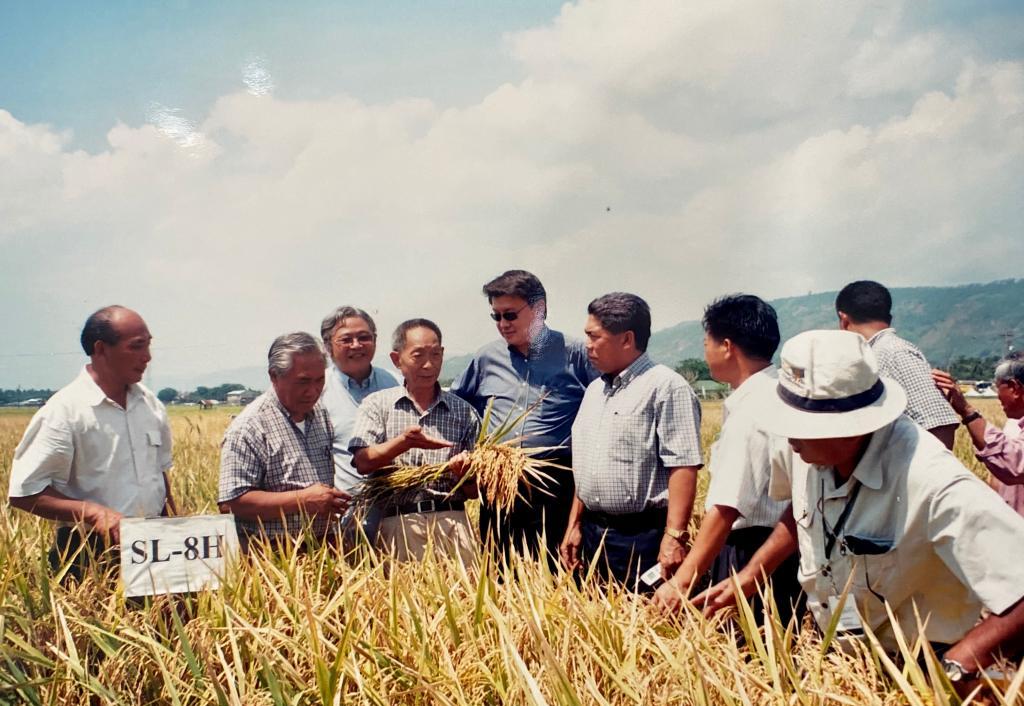Source: Xinhua News Agency
Manila, 7 Sep (Xinhua) -- In 1979, Yuan Longping, the "father of hybrid rice," was invited to the Philippines to attend an international academic conference to give a report on the conference.
Today, bananas, pineapples, avocados, fresh coconuts from the Philippines... It has entered thousands of households in China and met the needs of the Chinese people's taste buds.
Agricultural cooperation between China and the Philippines is showing vigor. The Filipinos have not forgotten the old Chinese man who brought them hybrid rice to help them increase their production and income, Yuan Longping.

In April 2003, Yuan Longping inspected and exchanged hybrid rice cultivation in the Inland Lakes Province of the Philippines (remake file photo). Photo by Xinhua News Agency reporter Liu Kai
Former Philippine President Arroyo recently delivered a video speech at the China-Philippines Agricultural Cooperation Forum, thanking Yuan Longping for his contribution to the Philippines' poverty reduction cause.
"Filipino rice farmers would like to thank Yuan Longping for teaching them to grow hybrid rice, which has helped them greatly increase their production and income," she said. ”
In the 1990s, when the Philippines wanted to introduce Chinese hybrid rice technology, Yuan Longping sent a technical team to participate in the research and jointly cultivate hybrid rice varieties that adapted to the local tropical environment. Yuan Longping visited the Philippines more than 30 times before his death, sharing his experience in growing hybrid rice with local farmers in the rice fields.
Today, hybrid rice is grown in the Philippines on more than 1 million hectares, with a maximum yield of 15 tons per hectare, three times that of traditional rice varieties. Rice from hybrid rice can be bought at farmers' markets and hypermarkets in the Philippines.
"For us Filipinos, much of what we have achieved in reducing poverty and the promotion of relations between the Philippines and China that we have witnessed is due in large part to Professor Yuan Longping's vision and perseverance," Arroyo said. ”
According to official data, bananas imported from the Philippines have accounted for half of China's market share, Philippine pineapple exports to China have grown steadily, and the Philippines is also the first Asian country to export avocados to China...
Today, China is the third largest export destination for Philippine agricultural products, and the two sides are studying to promote more Philippine agricultural products into the Chinese market. At the same time, China's investment in Philippine agriculture is also growing, including rice planting, feed production, agricultural machinery trade, mariculture and so on.
From a grain of rice, to colorful fruits, to raw seafood, China-Philippines agricultural cooperation not only brings mutually beneficial practical benefits, but also makes people in both countries feast. (Editors: Wang Yujue; Editors: Xie Binbin, Wang Shen)